Introduction: Afrobeats Female Pioneers
For years, the Afrobeats scene was heavily dominated by male voices — from the early days of 2Baba and D’banj to the global reign of stars like Wizkid, Davido, and Burna Boy. The genre’s success was largely shaped by masculine energy and male storytelling, often sidelining female talent to the background or limiting them to features and choruses. However, this long-standing imbalance has started to shift in remarkable ways, as a new generation of women have stepped into the spotlight with unmatched confidence and creativity. Their rise isn’t just symbolic — it represents a cultural shift in an industry once considered a boys’ club.
Artists like Tiwa Savage, Yemi Alade, Tems, Ayra Starr, and Tyla have redefined what it means to be a woman in Afrobeats. They are pushing sonic boundaries, blending genres, and telling stories from a feminine lens that resonates across continents. Their music is not only topping charts and earning international awards, but it’s also inspiring a wave of younger women to step forward with their own voices. With increasing global collaborations, festival appearances, and brand endorsements, these women are reshaping Afrobeats into a more inclusive and dynamic force — and they’re doing it on their own terms.
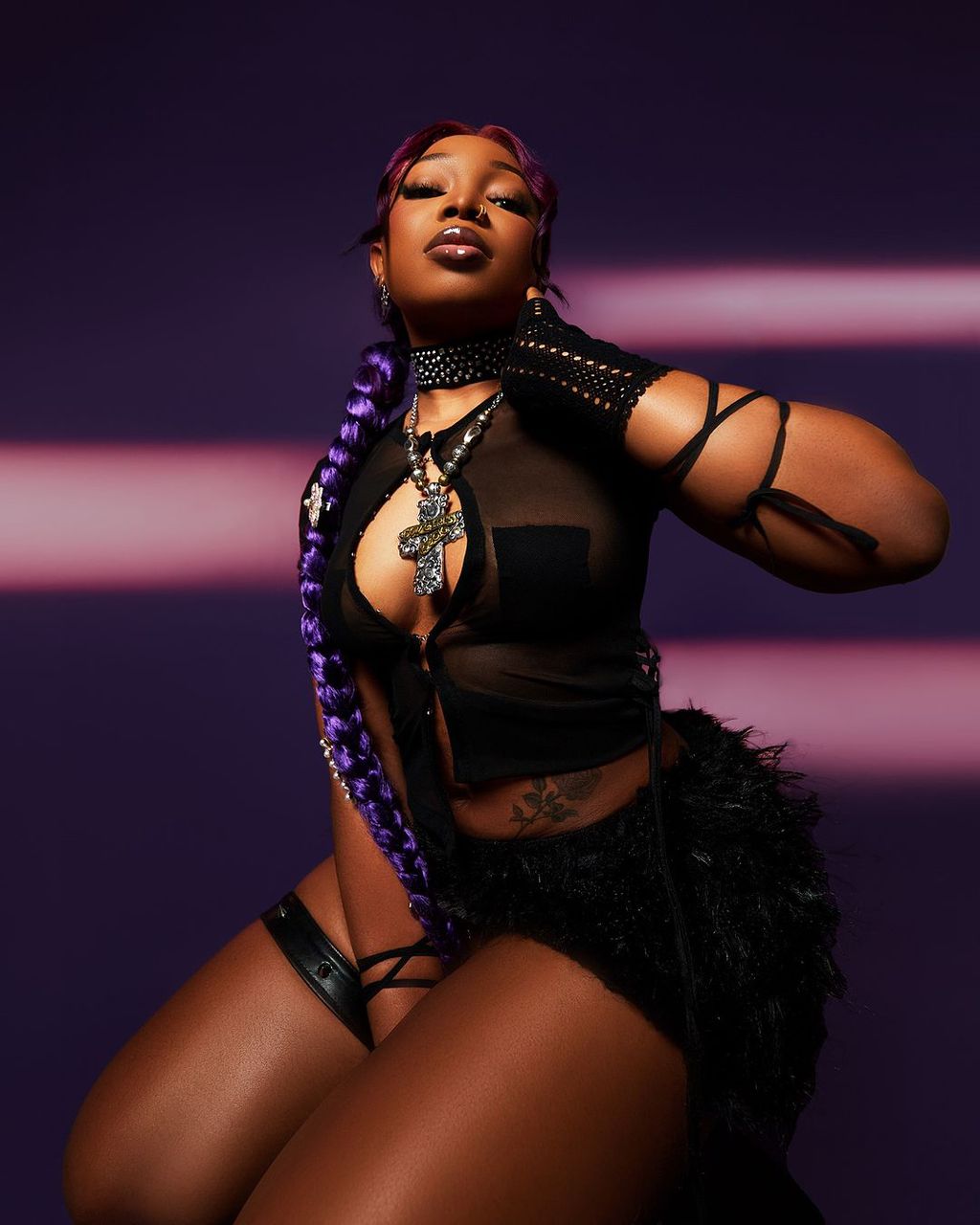
Breaking Through the Boys’ Club
It wasn’t always easy. The early days saw women like Omawumi, Waje, Tiwa Savage, and Yemi Alade breaking through a male-dominated industry, carving out spaces for themselves with grit, resilience, and undeniable talent. These pioneers often had to work twice as hard for half the recognition, navigating an environment that favored male artists in terms of airplay, endorsements, and opportunities. Despite these obstacles, they pushed forward with passion and perseverance, refusing to let their voices be drowned out in a sea of male dominance. Their presence alone was a statement — one that challenged the status quo and demanded room for women in Afrobeats.
These women didn’t just make music; they made statements. Whether through powerful vocals, commanding performances, or songs that spoke to love, strength, and identity, they laid the foundation for a more inclusive industry. Tiwa Savage brought a polished blend of R&B and Afrobeats that rivaled any of her male counterparts, while Waje and Omawumi delivered powerhouse vocals that could not be ignored. Yemi Alade’s energetic style and pan-African appeal further expanded the possibilities for female artists. Their collective impact created a path for the next generation, showing that women belonged not just in the background, but at the very forefront of the Afrobeats movement.
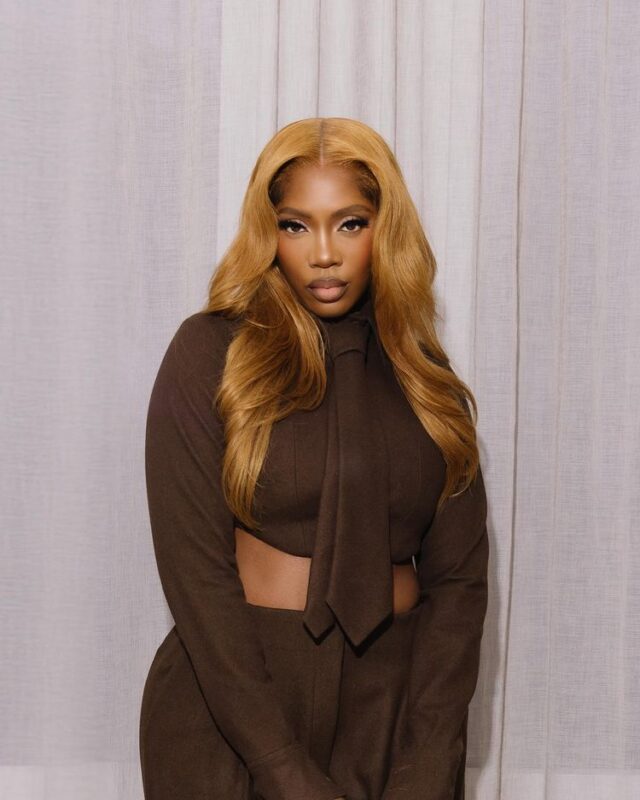
Tiwa Savage, in particular, set a new standard for what a female Afrobeats star could be. With her blend of soulful vocals, street-smart pop sensibilities, and commanding presence, she not only dominated the charts but also represented African music on global stages with pride.
Her breakthrough was more than personal success — it was a cultural shift. Tiwa’s rise helped dismantle the notion that female artists couldn’t be commercially viable or globally competitive in the genre. She showed that women could headline shows, strike international deals, and build loyal fanbases without compromising their artistry. Her influence became a blueprint for younger talents like Tems, Ayra Starr, and FAVE, who stepped into the industry more empowered and visible than those before them. Tiwa’s legacy is not just in her hits, but in the doors she opened for an entire generation of women who now know that the spotlight is big enough for them too.
Artists like Simi brought a softer, more introspective sound to Afrobeats, weaving heartfelt storytelling with a delicate vocal touch that stood out amid the genre’s typically high-energy rhythms. Her music offered emotional depth and lyrical intimacy, proving that vulnerability could be just as powerful as bravado. Songs like “Joromi” and “Duduke” showcased her ability to speak to love, longing, and everyday emotions in ways that felt deeply personal yet universally relatable. Simi’s success helped broaden the emotional range of Afrobeats, making space for quieter, more reflective expressions of identity and experience.
Her style challenged the notion that Afrobeats had to be loud or club-ready to resonate. Instead, Simi created a lane where soft melodies and soul-baring lyrics could thrive. She also stood out for her production acumen and musical versatility, often blending Afro-pop with folk, R&B, and highlife influences. This blend not only enriched her sound but also inspired a new crop of female artists to explore beyond the mainstream templates. In doing so, Simi expanded the genre’s possibilities and proved that authenticity and emotional intelligence were just as essential to Afrobeats as rhythm and energy.
The Role of Streaming Platforms in Promoting African Music Globally in 2025
Meanwhile, Niniola blazed a trail with Afro-House — a fusion of Afrobeats and South African house music, bringing an electrifying pulse to the genre. With tracks like “Maradona” and “Boda Sodiq,” she delivered infectious rhythms, hypnotic beats, and bold vocals that commanded attention and kept dance floors moving. Niniola’s music was unapologetically high-energy and deeply rooted in African percussive traditions, yet it carried a sleek, modern edge that made her instantly recognizable.
Her fearless approach to sound and performance set her apart as a genre-bending pioneer. At a time when most female artists were leaning into Afro-pop or soul, Niniola carved out her own lane and owned it. She not only popularized Afro-House in Nigeria but also gained international acclaim, influencing DJs and producers globally. Her success demonstrated that women in Afrobeats didn’t have to conform to existing molds — they could create their own, break the rules, and still rise to the top.
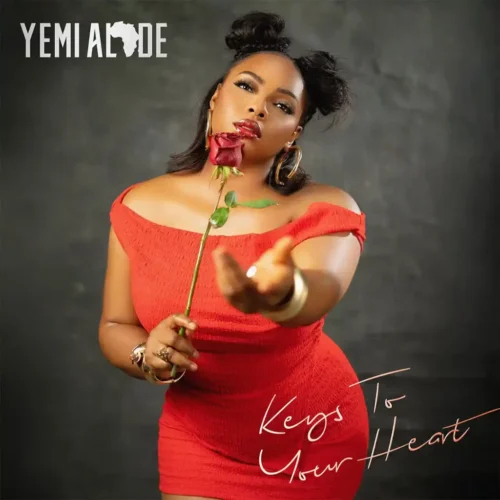
Yemi Alade, on the other hand, became a beacon of pan-African pop and one of the most visible female ambassadors of Afrobeats. Bursting onto the scene in 2014 with the massive hit “Johnny,” she quickly established herself as a dynamic performer with a flair for storytelling, dance, and fashion. Yemi’s vibrant personality and larger-than-life stage presence made her a fan favorite, while her embrace of different African cultures — from language to costume to sound — helped build bridges across the continent. She became a staple not just in Nigeria, but in Francophone Africa and other regions where her multilingual songs and cross-border collaborations resonated deeply.
Her approach to Afrobeats wasn’t just about music — it was about representation, unity, and cultural celebration. By incorporating elements of highlife, coupé-décalé, and other African genres, Yemi Alade expanded the genre’s reach and helped position Afrobeats as a truly continental sound. Her music videos, often shot in various African countries, visually reinforced this message of pan-African identity. Together with her peers, she proved that female artists were not only capable of keeping up — they were redefining the pace and direction of the genre. In doing so, they turned what was once a male-dominated scene into a more colorful, inclusive, and globally resonant movement.
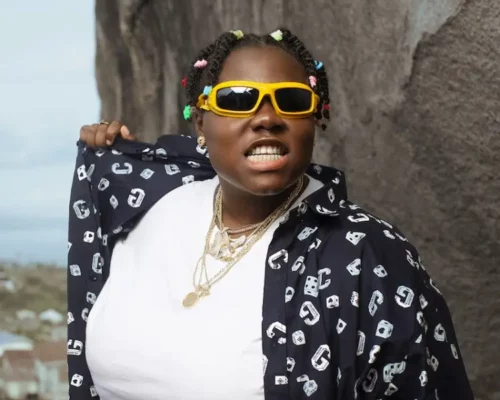
Teni brought an entirely different flavor to Afrobeats — playful, bold, and refreshingly relatable. Bursting onto the scene with hits like “Case” and “Uyo Meyo,” she quickly captured hearts with her humorous storytelling, infectious melodies, and larger-than-life personality. Unlike many of her peers who leaned into glam and sex appeal, Teni embraced a carefree, tomboyish charm that made her stand out. Her music often reflected everyday experiences — love, hustle, heartbreak — in ways that felt honest and down-to-earth, giving her a unique connection with fans across demographics.
Beyond her catchy hooks and signature vocals, Teni proved that authenticity could be a brand of its own. She didn’t fit the typical pop star mold, and that became her strength. With strong songwriting skills and a flair for genre fusion — blending Afrobeats with elements of Fuji, highlife, and pop — she showed just how versatile and dynamic female artistry could be. Teni’s success opened the door even wider for women who didn’t want to conform to industry standards, reminding everyone that in Afrobeats, there’s room for every voice, every look, and every story.
10 Grammy-Nominated Nigerian Songs You Should Add To Your Playlist
A New Generation, A New Vibe
Fast forward to today, and the wave of female Afrobeats stars is impossible to ignore. Tems has emerged as the face of soulful rebellion — introspective, sultry, and effortlessly global. Her unique voice, moody soundscapes, and emotionally rich lyrics have redefined what Afrobeats can sound like, especially on the international stage. From her breakout on “Essence” with Wizkid to co-writing “Lift Me Up” for Rihanna and topping charts with Future and Drake on “Wait For U,” Tems has shattered every ceiling placed before her. In 2023, she made history by winning a Grammy Award for Best Melodic Rap Performance on “Wait For U,” becoming the first Nigerian female artist to win a Grammy. She followed that with another Grammy win in 2024 for Best African Music Performance with “Love Me JeJe,” cementing her place as one of the most decorated and influential female voices in contemporary Afrobeats.
Tems represents more than just musical success; she embodies a shift in cultural power. She’s part of a new wave of women who aren’t just carving niches — they’re building empires on their own terms. With her calm defiance, genre-blending style, and global resonance, she’s become a symbol of what’s possible when talent meets opportunity and freedom. Her journey is a beacon for aspiring artists, especially women, showing that Afrobeats is no longer limited by geography, sound, or gender. This isn’t a moment — it’s a movement, and the women are leading it with grace, grit, and groundbreaking artistry.
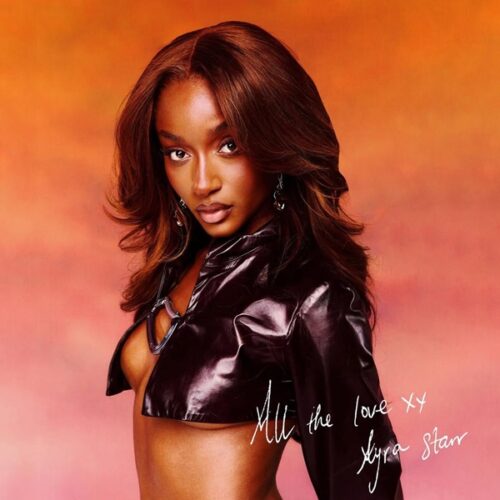
Ayra Starr is Gen Z’s poster girl — fierce, stylish, and unapologetically genre-fluid. She blends Afrobeats with hints of pop-punk, soul, and R&B, creating a sound that’s fresh, edgy, and globally resonant. From her bold fashion choices to her empowering lyrics, Ayra speaks directly to a new generation unafraid to challenge conventions or embrace vulnerability. She’s not just an artist; she’s a cultural force, embodying the spirit of young Africans who are confident, expressive, and ready to rewrite the rules of success.
Her debut album 19 & Dangerous was more than a collection of songs — it was a coming-of-age manifesto. With hits like “Bloody Samaritan” and “Beggie Beggie,” she showcased both emotional range and lyrical depth, blending confidence with introspection. Her rapid rise caught international attention, culminating in a major milestone: signing a global management deal with Jay-Z’s Roc Nation. That move not only solidified her status as a rising global star but also signaled a new era for Afrobeats, where young women are stepping into international power circles with both talent and vision. Ayra Starr isn’t just the future — she’s the now, and the world is watching.
Meanwhile, artists like Fave, Bloody Civilian, Qing Madi, and Guchi are carving out their own spaces in the ever-evolving Afrobeats landscape, each bringing something distinct to the table.
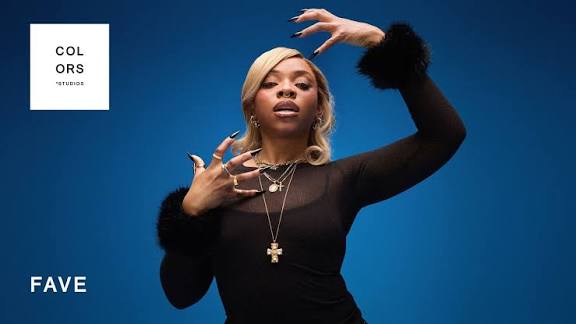
Fave’s emotive delivery and melodic storytelling have earned her a loyal fanbase, positioning her as one of the most compelling new voices in Afrobeats. Her breakout hit “Baby Riddim” showcased her ability to blend vulnerability with catchy rhythms, creating music that feels both deeply personal and universally appealing. With a voice that carries both soul and strength, Fave’s lyrics often explore love, self-worth, and emotional resilience — themes that resonate strongly with young listeners navigating their own journeys.
Her collaboration with Davido on the hit track “Kante,” off his Timeless album, further amplified her reach and impact. On the song, Fave’s hauntingly beautiful hook pairs seamlessly with Davido’s signature energy, creating a standout moment on an already celebrated project. “Kante” not only introduced her to a broader audience but also highlighted her ability to hold her own alongside one of Afrobeats’ biggest names. As she continues to evolve, Fave stands as a symbol of the new Afrobeats era — one where women are not only expressing their truths but also shaping the sound, style, and soul of the genre.
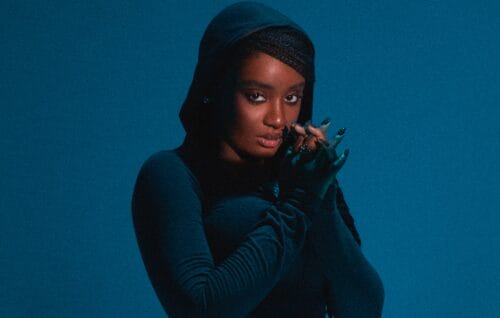
Bloody Civilian’s experimental edge and genre-defying production set her apart as a bold new voice in alternative Afrobeats. Her music fuses elements of electronic, Afro-fusion, and cinematic sound design, offering a dark, edgy twist to the traditionally upbeat Afrobeats formula. Tracks like “I Don’t Like You” and “How To Kill a Man” showcase her fearless approach to both sound and subject matter — addressing themes like rebellion, identity, and emotional complexity with raw honesty. She’s not just making music; she’s crafting an aesthetic and narrative that challenges the mainstream and expands the boundaries of what Afrobeats can be.
Breaking Stereotypes in the Music Industry – How Black Sherif is Empowering Artists in Africa
Her collaborations also speak volumes about her rising influence. On the track “Blood on the Dance Floor,” she teamed up with Nigerian street-hop heavyweight Odumodublvck and U.S. rap star Wale, creating a genre-blending anthem that fuses gritty rap energy with her ethereal, experimental touch. The song is a bold statement — not just musically, but culturally — connecting Lagos to Washington, D.C., and signaling her global ambitions. These rising stars are not just releasing songs — they’re curating full artistic experiences, complete with powerful visuals, fashion-forward aesthetics, and messages that resonate with a generation hungry for authenticity. Bloody Civilian is at the forefront of that movement, unafraid to break molds and forge her own path.
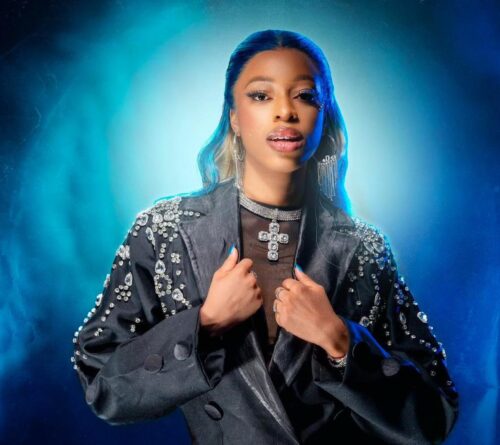
Qing Madi and Guchi add even more texture to the scene with their infectious hooks and genre-blending appeal. Qing Madi’s youthful confidence and sonic freshness have made her a standout among Gen Z audiences, earning her recognition as one of the most exciting new voices in the Afrobeats space. Blending elements of R&B, Afro-pop, and soul, her music feels both modern and emotionally resonant. Tracks like “See Finish” and “Ole,” featuring BNXN, highlight her knack for catchy melodies, poetic lyrics, and relatable themes — from heartbreak to self-worth — all delivered with a raw, unfiltered honesty that speaks directly to a younger generation.
Her growing influence recently reached a new milestone with her international collaboration alongside American R&B star Chlöe Bailey on the remix of her breakout hit “Vision.” The cross-continental duet added a new layer of depth to the track, fusing Qing Madi’s ethereal Nigerian sound with Chlöe’s powerful vocals and American soul sensibilities. The collaboration not only expanded Qing Madi’s global reach but also underscored her ability to hold her own on an international stage. As her sound evolves, Qing Madi continues to redefine what it means to be a young female artist in Afrobeats — blending softness with strength, and intimacy with innovation.

Guchi’s vibrant, feel-good style fuses pop sensibilities with Afro rhythms in a way that feels effortlessly global. Together, these women represent the next wave of Afrobeats — fearless, creative, and unafraid to take risks. As the genre continues to expand across borders, their voices are pushing it into new emotional, visual, and cultural dimensions.
More Than Music: Role Models, Trendsetters, Icons
These women aren’t just changing the sound — they’re shaping the culture. From fashion to feminism, they’re using their voices to speak boldly about confidence, heartbreak, womanhood, and self-worth. Their lyrics echo the real-life experiences of young African women, offering both comfort and empowerment through relatable storytelling. Beyond the music, their presence on social media and in the public eye has helped redefine beauty standards, style trends, and what it means to be a successful African woman in today’s world. They are not afraid to be soft or strong, glamorous or rebellious — and in doing so, they’re expanding the narrative around femininity in Afrobeats.
They are also brand ambassadors, festival headliners, and chart-toppers — occupying spaces once reserved for male artists and making them their own. From sold-out shows to international endorsements, these women are setting new benchmarks for commercial and creative success. Whether they’re producing their own records, collaborating with global stars, or leading conversations on gender and representation, they are proving that Afrobeats isn’t just a boys’ club anymore. It’s a global stage with room for queens — women who sing, spit, produce, and perform with unmatched power and purpose. Their influence isn’t just felt in music, but in culture, commerce, and the hearts of millions who now see themselves reflected in the spotlight.
Conclusion: The Future is Female — and Fierce
The rise of female stars in Afrobeats is no longer a trend — it’s a permanent shift. These women are not just part of the conversation; they’re leading it. With their voices, visuals, and vision, they’re expanding the reach of Afrobeats and reshaping what it means to be a woman in music — not just in Africa, but around the world. From topping charts and winning Grammys to rewriting cultural narratives and inspiring millions, they’ve proven that their presence is not only powerful but essential.
They are architects of a new era — one where women aren’t waiting for permission to take the spotlight, they’re owning it. Whether through soul-baring ballads, high-energy anthems, or genre-blending experiments, they are pushing Afrobeats into uncharted territory. And as their influence continues to grow across continents, industries, and generations, one truth becomes undeniable: Afrobeats is no longer just a sound driven by rhythm — it’s a movement driven by women. Fierce, fearless, and here to stay.
As the genre continues its global ascent, the influence of these trailblazing women will only grow stronger. They’re not just succeeding within the system — they’re rewriting the rules entirely. By breaking molds, setting new standards, and unapologetically occupying space, they’re making room for even more diverse voices to thrive. Their success sends a powerful message to aspiring artists across the continent: that there is no one way to be a woman in music, and that individuality is a strength, not a limitation.
The next generation isn’t just watching — they’re being inspired, empowered, and emboldened to dream bigger. These women are shaping more than sound; they’re shaping culture, identity, and the future of global African artistry. With this unstoppable wave of talent, authenticity, and fearless energy, one thing is clear: the future of Afrobeats is female — and it’s absolutely fierce.
The post The Rise of Female Stars in Afrobeats: Queens of the New Sound appeared first on tooXclusive.
Disclaimer:The opinions presented in this post are those of the mentioned author. The content has been sourced from TooXclusive, with due attribution to the company.
If you wish for us to take down this content, kindly get in touch as soon as possible. This material is shared strictly for promotional purposes only.



